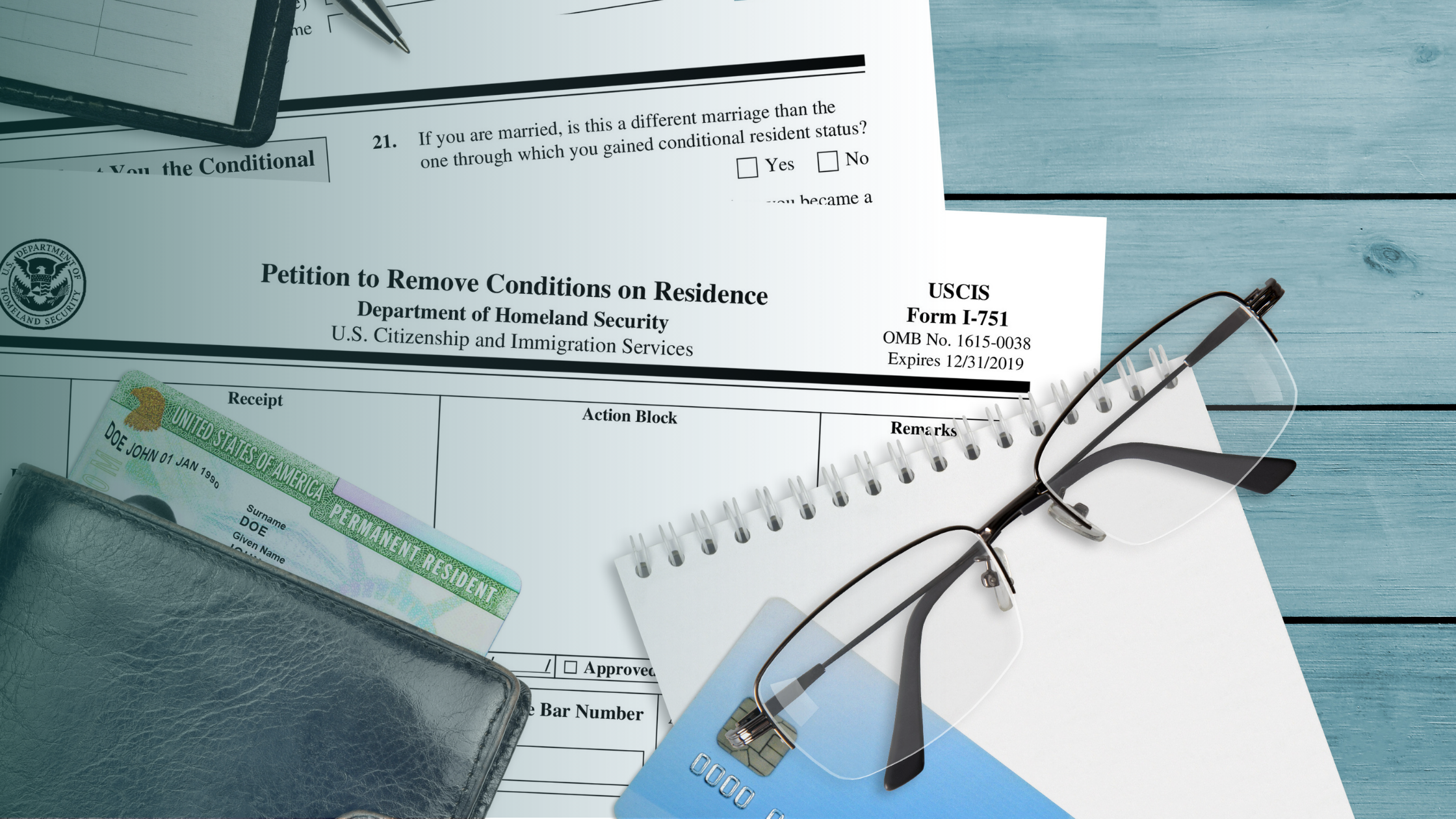For people who gain conditional residency through marriage, the 751 waiver process can be essential for maintaining your residency if the marriage ends. Conditional residency means that instead of a standard 10-year green card, you receive a two-year green card, requiring you to file Form I-751 to remove the “conditions” and gain permanent residency. This process can be straightforward if you are still married and can file jointly with your spouse.
However, if the marriage ends or becomes unsafe, a 751 waiver allows you to file alone, even after a divorce or separation. Understanding the steps and eligibility for the 751 waiver is important for maintaining your lawful residency status.
What Is a 751 Waiver & Who Can Use It?
The 751 waiver is designed for conditional green card holders who cannot file a joint petition with their spouse. While joint filing is an option for couples still married and living together, not everyone can file this way. For instance, the marriage may have ended due to divorce, or there may have been abuse in the relationship. If you need to file alone, you may qualify for one of several types of waivers:
- Waiver Based on Divorce or Annulment: This waiver applies to people who entered the marriage in good faith but divorced or had the marriage annulled before filing to remove conditions.
- Waiver Due to Abuse or Extreme Hardship: This waiver is for those who have experienced abuse or other difficulties that make it unsafe to stay married or who can demonstrate extreme hardship if deported.
To qualify for a waiver, you must show that the marriage was genuine when it began, even if it did not work out or become unsafe over time. This often requires providing records such as joint leases, photos, shared financial statements, or affidavits from people who know the history of your marriage.
Can I Apply If My Green Card Is Expired?
A common myth about the 751 waiver process is that you are no longer eligible if your green card expires. Even if your conditional green card expired years ago, you may still file the 751 waiver. However, expired status can put you at higher risk of being placed in removal proceedings. This can happen because USCIS may issue a Notice to Appear if your status isn’t updated.
For example, if someone’s green card expired in 2022 and divorced in 2023, they could still file for a 751 waiver if they show the marriage was genuine when it started. Even with an expired green card, USCIS allows conditional residents to apply to remove conditions independently if they meet waiver qualifications. However, without a valid green card, individuals may have to attend a USCIS interview before final approval.
Common Misunderstandings About Filing Form I-751
Many conditional residents assume they should use Form I-90 to renew their conditional green card. However, Form I-751 is the correct form to remove conditions on permanent residency status. Form I-90 is used only to restore or replace a permanent resident card, not to lift the conditional status of a marriage-based green card.
751 waivers are also known for long processing times, which can sometimes last several years, so filing as soon as you’re eligible is a good idea. The sooner you submit your waiver, the better your chances of avoiding a lapse in your green card status or facing complications with removal proceedings.
If your situation requires a 751 waiver, speak with an attorney who understands immigration law so you know which type of waiver best fits your case. Contact ZafiroLaw to schedule a consultation and get reliable information on how to keep your residency status secure.


